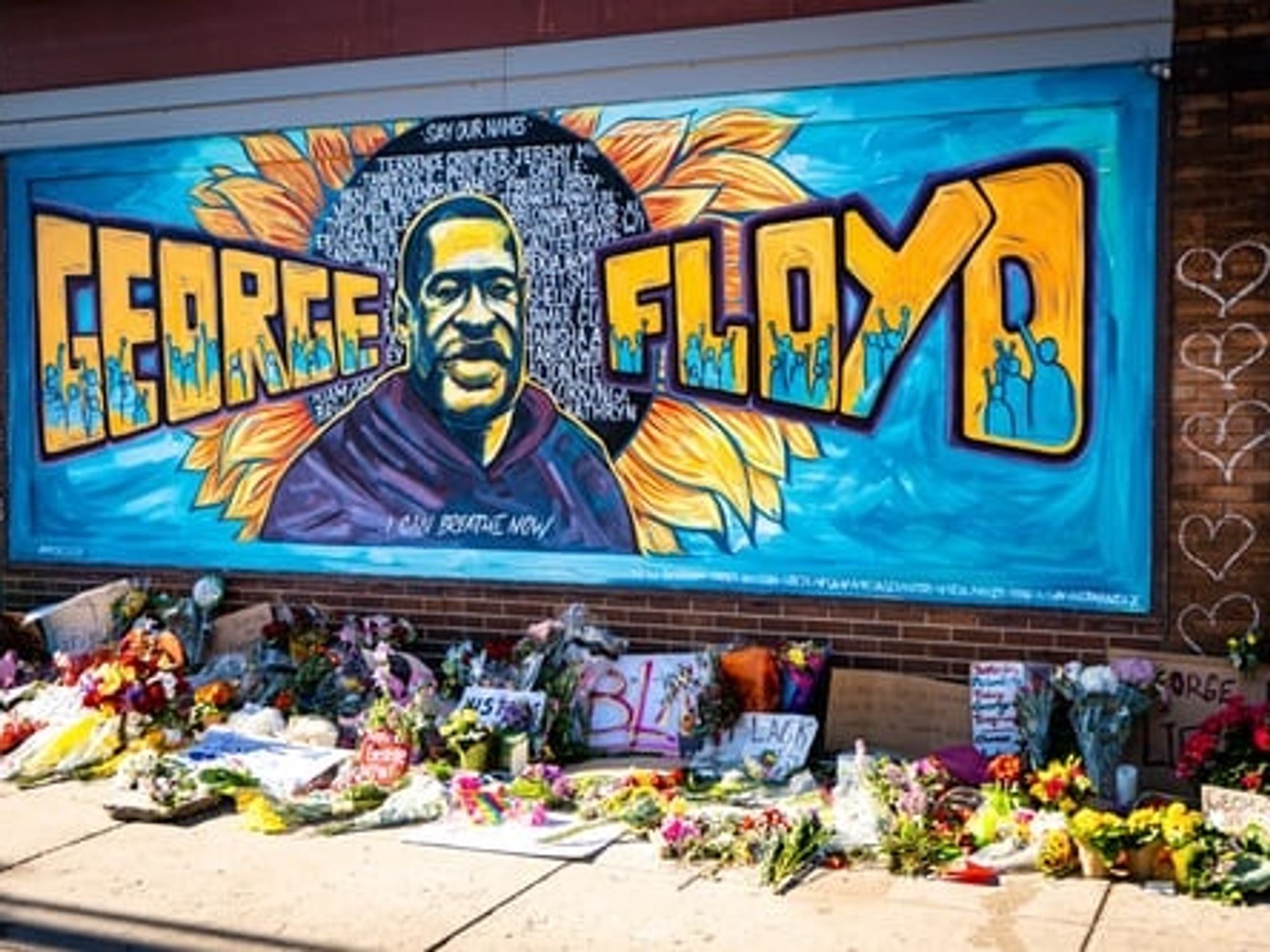'This is a Turning Point in America.' Blavity CEO Calls on Investors to Put Their Money Where Their Mouth is

Minneapolis is burning. Just like Ferguson burned. Just like Baltimore burned. Just like countless other cities before them, swallowed by the rage of black protestors fed up seeing the lives of our brothers and sisters robbed by racism.
We are fed up because we are forced to fight a pandemic amid a pandemic. We are being disproportionately killed by systemic and overt racism at the same time — and are expected to accept these deadly conditions. Crisis after crisis, crisis on top of crisis, we have marched, kneeled, lobbied, voted and built our own spaces to find ways to navigate it all. And yet, we wake up each day, face the trauma and fight on.
Our rightful outrage and collective uproar have made it impossible for the world to ignore our struggles. The world — namely white people who have perpetuated the disparities that have held black Americans back for so long — must feel the pain and anger we feel when we witness black folks being mistreated in plain sight and black lives being taken so mercilessly.

Morgan DeBaun is the chief executive and founder of Blavity Inc.
It is time for non-black Americans, who have benefitted from a system that has always placed more value on their lives, to understand, speak up and DO something about the institutionalized racism that runs rampant. This includes individuals as well as companies who employ and profit from black consumers but have not taken actions or expressed words to show that they believe black lives truly matter.
This is a turning point in America. Accountability can not be avoided and demands have been made loud and clear for corporations near and far: Speak up against racism and take action to fight it. Release a statement denouncing racism and in support of basic human rights for black lives, give money to national black-led non-profits committed to creating social change, donate to bail funds for protestors. Amplify the voices and concerns of black Americans. Employ black people. Fund black entrepreneurs. Do SOMEthing. We all have a role and responsibility in this fight.
Black folks are in a constant state of mourning, from Breonna Taylor to Ahmaud Arbery to Tony McDade — millions of black men and women have been killed unjustly at the hands of white Americans. And the tragedy does not just rest in the loss of life, it exists in all the ways we are negatively impacted by these travesties mentally, emotionally and physically.
Erica Garner would have turned 30 years old last week. Instead, she died three years ago at the young age of 27 after suffering a heart attack. She died because her body could not hold the weight of the burden and pain she was forced to carry fighting for justice on behalf of her father, Eric Garner. She died after watching her father struggle to tell officers "I can't breathe" as one dug an arm into his neck and killed him. She died after using every ounce of energy in her to demand answers in the federal investigation of her father's death. She died, yet these same cops continue to walk free. Days after Erica's untimely passing, Blavity published the last essay she wrote on her relentless fight for justice.
"Now it's been three years later, and we're still waiting on justice," Erica wrote in the last line of her essay, published in January 2018.
NOW, it's been years since Erica's death, and we're still waiting on and fighting for the same thing. But we must fight on because Erica's death should not be in vain — and neither should the deaths of Eric Garner, George Floyd, Tamir Rice, Trayvon Martin and countless others.
Our pain serves a purpose. Destruction is necessary to make space for a new reality. A new world must eventually emerge because, as former President Barack Obama addressed in his statement this morning, we can not accept our current reality.
"It's natural to wish for life 'to just get back to normal' as a pandemic and economic crisis upend everything around us. But we have to remember that for millions of Americans, being treated differently on account of race is tragically, painfully, maddeningly 'normal' — whether it's while dealing with the health care system, or interacting with the criminal justice system, or jogging down the street, or just watching birds in a park. This shouldn't be 'normal' in 2020 America. It can't be 'normal.' If we want our children to grow up in a nation that lives up to its highest ideals, we can and must be better."
For now, we must fight on.
We must manage our mental health in the process.
We must shower our black kids with affection.
We must hold the white people in our lives accountable.
We must support each other's businesses, health and overall wellness.
We must spread love to each other in unconditional ways.
We are all we got.
Morgan DeBaun is the chief executive and founder of Blavity Inc.
- Making Your Work 'Essential' in Trying Times - dot.LA ›
- Morgan DeBaun, CEO / Founder of Blavity Inc. - dot.LA ›
- George Floyd Protests: a16z Launches Fund For Diverse Founders; Snap Drops Trump From Its Discover Feature - dot.LA ›
- Disney will donate $5M to Social Justice Groups - dot.LA ›
- Actionable Steps to Fight Racism, A Conversation with Dr. Cheryl Ingram - dot.LA ›
- Actionable Steps to Fight Racism, A Conversation with Dr. Cheryl Ingram - dot.LA ›
- Navigating the Venture Capital World as a Black Person - dot.LA ›
- How Working From Home Challenges Women and How To Succeed - dot.LA ›
- How Working From Home Challenges Women and How To Succeed - dot.LA ›
- Event: AfroTech Executive 2021 - dot.LA ›
- What to Expect at AfroTech's 2021 Tech Summit - dot.LA ›
- Aaron Samuels On Collide Capital and Creating Blavity - dot.LA ›




 Image Source: JetZero
Image Source: JetZero